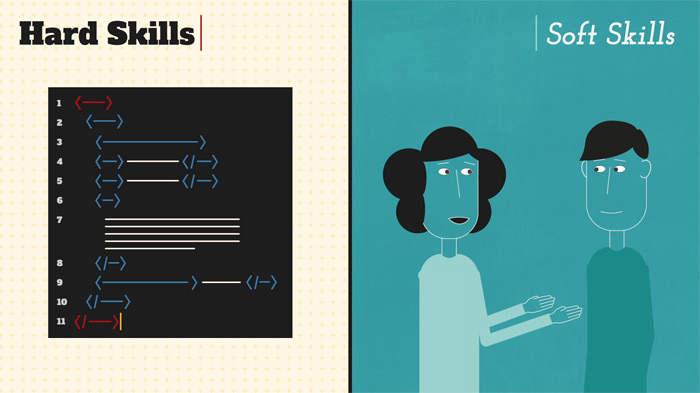

/en/jobsearchandnetworking/personal-branding-101/content/
When it comes to work skills, they can be broken down into two types: hard skills and soft skills. They're pretty different from one another, but both are necessary to be successful on the job.
Watch the video below to learn more about hard skills and soft skills.
Hard skills are concrete skills that are specific to your job and are required for you to actually do your work. For example, if you're a chef, cooking would be a hard skill. Or if you're a computer programmer, coding would be an example.
Soft skills, on the other hand, are interpersonal or people skills that can be used in every job. These include communication, teamwork, and adaptability.

Hard skills are generally learned through school, training, or previous work experience. They're objective, meaning that once you've learned the information or task, you then possess that skill. Because of this, they're fairly easy to measure. Employers can get a good ideas of your hard skills by looking at your certifications, education, and previous experience.

Soft skills are a bit more difficult to develop than hard skills. You'll need to practice them over time in the real world with others. They come naturally to some people, while others may not have such an easy time with them.
Soft skills are also harder to evaluate. They can't really be communicated well through your cover letter or resume. Instead, employers usually have to wait until an interview or your first few weeks on the job to get a good idea of your soft skills.
Despite their differences, you'll need both hard and soft skills if you want to become more hireable or be successful in your current job.

/en/jobsearchandnetworking/the-entrylevel-catch22/content/